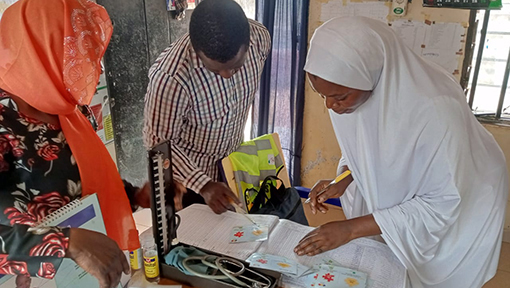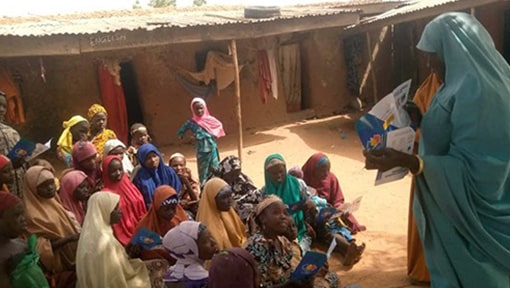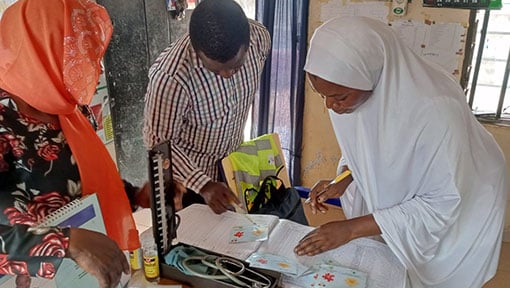Despite Senegal’s Nine-Month Health Worker Strike, Nioro Sees LARC Usage Trend Improve
By: Adama Seck and Sarah Brittingham

Nioro’s Reproductive Health Coordinator, Sadio Baye Mbaye.
The Challenge Initiative (TCI) began a fruitful collaboration with the Senegalese municipality of Nioro in December 2017. Situated about 400 kilometers from Dakar across the Gambia River within the Kaolack region, Nioro is where just 22.2% of women are using a modern contraceptive method. To increase access to family planning, Nioro prioritized and implemented the following TCI proven approaches when designing their program – universal referral, improving commodity management and supplies, and strengthening provider capacity, especially in the provision of long-acting reversible contraceptives (LARCs), to best meet the population’s needs. In addition, the city emphasized plans to establish a local steering committee to champion this important work.
A health workers’ strike from April 2018 to December 2018 across Senegal threatened to jeopardize hard-fought gains in Nioro’s family planning program. Health data was withheld throughout the strike and family planning, malaria and vaccination services were restricted for the last four months of the strike. Stock-outs of short-term methods – including injectables, a preferred method in the district – were experienced by most facilities.
Word spread quickly that family planning and other essential services were not readily available at public health facilities due to the strike and by March of 2019, client volume was at an all-time low. Slowly, women started to adapt their preferences to this new reality, opting for LARCs so they could obtain optimal protection without having to return to the facility often. Fortunately, Nioro had prioritized LARCs when originally designing its program and workplan with TCI. As a result, providers were trained on LARCs and the city provided the needed commodities by June 2018.
TCI anticipated that health facilities would need time and support to resume normal operations once the nine-month strike ended, so it recalibrated its approach. In early 2019, a small team from Nioro met with TCI in its Dakar office to focus activities and resources on active data collection to ensure the availability of reliable data and demand generation activities within the community to further promote the use of LARCs. The team developed a plan based on TCI’s proven approach to support communication for family planning with community activities such as home visits and religious leaders to support Nioro’s rebound and hopefully reverse the decline in family planning uptake caused by limited service availability in the district.
Upon returning to Nioro, Sadio Baye Mbaye – the municipality’s Reproductive Health Coordinator – along with the district health education officer supported stakeholders at the community level, such as religious leaders and community health workers, to implement demand generation activities between January and March 2019. Together, they trained four religious leaders (who then organized 12 awareness-raising sessions for other religious leaders), strengthened the capacity of 30 community health workers to conduct home visits and oriented 50 council members on family planning advocacy.
Recent data from the Health Management Information System (HMIS) shows that in December 2019, annual family planning client volume had increased by 14% from its lowest point in March 2019.

Increase in annual family planning client volume (Source: HMIS).
According to Mbaye, Nioro stands out for its success in the region:
After an evaluation of our indicators in the Kaolack medical region, we can see an improvement in our indicators compared to the other three districts…. We are lucky that the TCI project supports us. Its area of intervention is …. Nioro district. The other districts have no partner that only focuses on FP. Nioro is fortunate to have a project that only focuses on FP… I think the new action plan which is being developed will allow us to sustain this momentum… It will improve the indicators and it will have an impact on the population we work with because FP is the first pillar to fight against maternal and neonatal mortality.”
She added that Nioro’s recent success reversing the negative trend in family planning client volume may even lead to further demand for TCI in the region.
The head doctor of the region was highly satisfied with TCI. He even asked me to plead with TCI for the other districts to join the program.”






